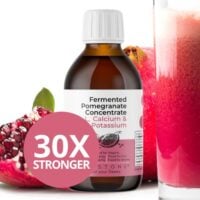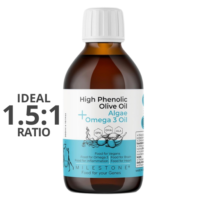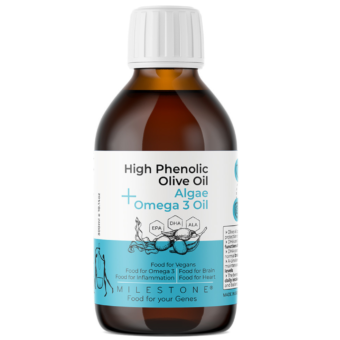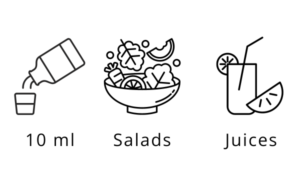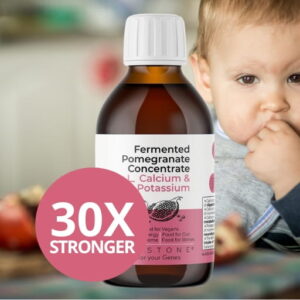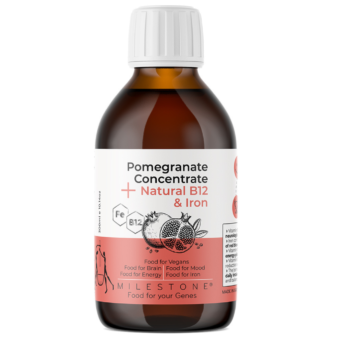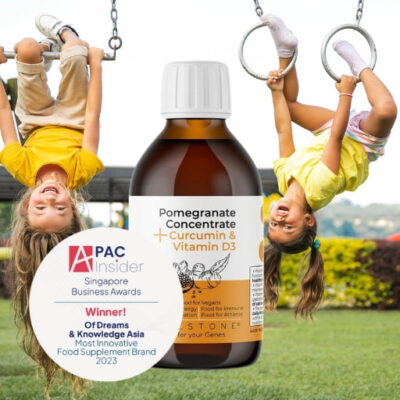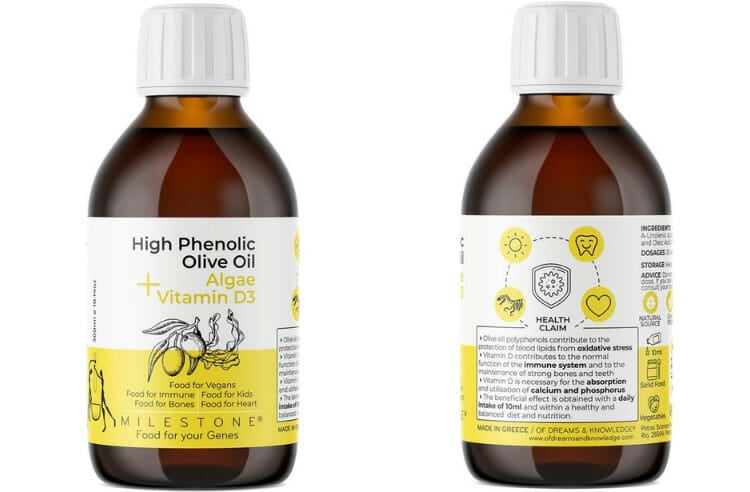Nourishing Infants & Children with Functional Foods
Safe, Effective Nutritional Boosters for Your Child’s Unique Needs
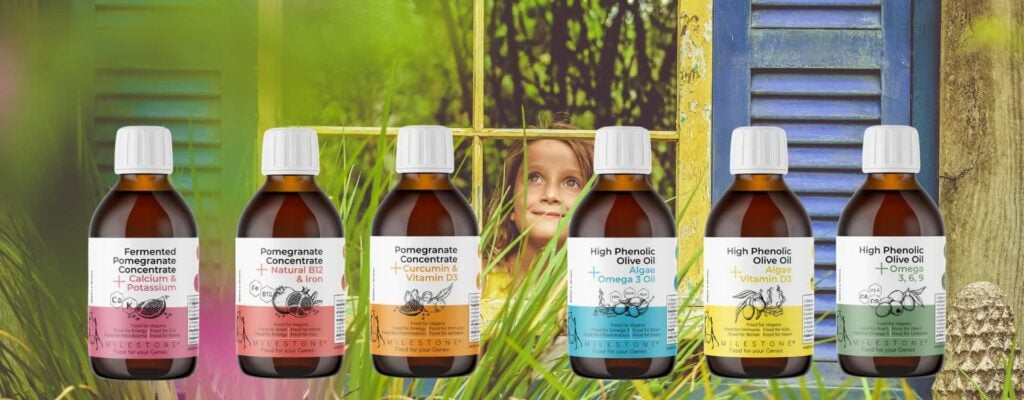
Essential Nutrients and Potent Bioactives Tailored for Infants and Children
Nutrients in Every Drop
Every drop of our functional foods is packed with essential nutrients, designed to fill those gaps and support balanced growth. Unlike synthetic vitamins, our natural ingredients work synergistically for better nutrient absorption.

Brain & Bone Development
600IU of Algae D3
Unveil the power of our ethically sourced Vitamin D3 from algae, a highly bioavailable form that delivers 600IU in just a 10ml serving. This cruelty-free alternative to lanolin strengthens bones, and boosts immunity with enhanced purity and efficiency.

Allergies & Intolerances
Allergies can make even the simplest meals complicated. We offer allergy-friendly, pure formulations to help manage common sensitivities and intolerances, giving you peace of mind. Our products are free from common allergens for your child’s safety.
Attention & Behavior
Supporting attention and behavior begins with nutrition. Our Fermented Pomegranate Concentrate + Vegan Curcumin + Vitamin D3 aims to enhance focus and manage hyperactivity, supporting your child’s overall well-being.

Soothing Skin Conditions
Dealing with eczema or other skin conditions? Our Medical Olive Oil can be a godsend. This functional food is rich in natural antioxidants that may help soothe irritated skin from the inside out. Keep your child’s skin hydrated with pure olive bioactives.
Elevate your family’s daily meals with our specialized pairings. Unite the best of culinary traditions with our scientifically-formulated functional foods. Our recommended combinations offer delicious ways to boost your child’s nutrition while pleasing their taste buds.
Introducing Solids: Nutritional Boosts for Baby's First Foods
Pure, Potent and Tasty: Algae D3 & Olive Bioactives
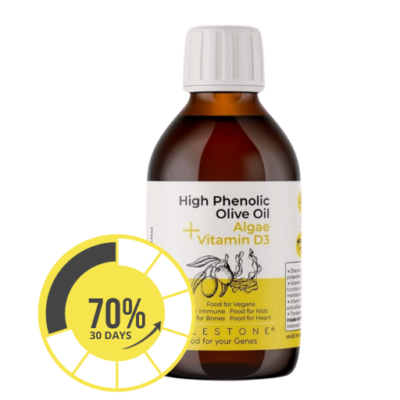
A Superior and Cleaner Alternative to Lanolin-Based Options
Upgrade your child’s wellness with our ‘High Phenolic Olive Oil + Vegan Algae Vitamin D3.’ Unlike lanolin-based D3, our Vegan Algae Vitamin D3 provides a cleaner, plant-based source. Coupled with natural olive bioactives and healthy fats, it supports immune health and tastes great. Transform your children’s’ meals into opportunities for better health.







Tackle childhood diabetes and high cholesterol with our “High Phenolic Olive Oil + Vegan Algae Omega 3.” This functional food combines the power of Omega 3’s EPA, DHA, and ALA with the antioxidant properties of high phenolic olive oil. Safeguard your child’s health while combating modern dietary pitfalls.
Pure, Safe Omega-3s
Choose our “High Phenolic Olive Oil + Vegan Algae Omega 3” for an Omega-3 source that’s free from the chemical contaminants often found in fish oils. Our vegan formula with EPA and DHA ensures the safest, purest nutritional supplement for your child.
Medical Olive Oil Benefits
Our high phenolic olive oil is not your average olive oil. It’s rich in natural antioxidants and mono-unsaturated fatty acids, contributing to immune support and optimal growth for infants and children. The top choice for family health.






Unparalleled EPA + DHA in Harmony with Unique Olive Bioactives
Discover a holistic approach to your child’s health with our potent Omega-3 formula in triglyceride form—85 times more effective than common fish oils. Coupled with the unique olive bioactives in our medical-grade olive oil, this functional food sets a new standard in child nutrition.
Omega Balance / Olive Polyphenols / Diabetes
Comparing the Benefits: Our Formula vs. Fish Oils
Our “High Phenolic Olive Oil + Vegan Algae Omega 3 (EPA DHA ALA)” is more than just a health booster; it’s a taste delight your child will love. Free from the fishy aftertaste of traditional fish oils, our vegan alternative is packed with essential fatty acids for brain and heart health. It’s flavor your child will enjoy and nutrition you can trust.
100% Plant-Based
Is it plant-based and therefore suitable for vegans or vegetarians?
Rich in Natural Bioactives
Absorbed in less than an hour. Antioxidants play a major role for your health.
Plus Vitamin E
Natural vitamin E protects cells from the damage caused by free radicals
Free of Chemicals & Pesticides
Free of contaminants, heavy metals and pesticide residues that pass directly to your blood.
Liver Health
Does long-term consumption affect liver health?
Form of Omega-3s
Contains the most active EPA and DHA forms, necessary for diabetes and high cholesterol regulation.
Unlocking the Full Potential
Experience the unmistakable flavor of our Fermented Pomegranate Concentrate. This exceptional fusion of medical concentrate, brimming with heart-healthy punicalagins, enzymes, and only natural fructose offers a symphony of health benefits. Discover how to optimally store and use it.
The Heart of Our Concentrates
Experience award-winning nutrition tailored for your child. Our Fermented Pomegranate Concentrate is unparalleled in its polyphenol content, making it a groundbreaking choice for holistic health. Multi-award-winning, this concentrate is your go-to for ensuring your child receives the nutrients they deserve.
Elevate your child’s nutrition with our award-winning pomegranate concentrates, free from artificial sweeteners and preservatives. Specifically formulated to meet the unique needs of growing kids, our concentrates provide a pure, safe, and highly effective nutritional boost.
Record Natural Polyphenols
Experience the pinnacle of wellness with our concentrates, home to the world’s highest levels of natural polyphenols. Each drop is a potent blend of antioxidants and catalysts for urolithin A and ellagic acid production in the gut, offering cellular and digestive health benefits. Elevate your well-being effectively and holistically.

Most Innovative Business
Winners at NutraIngredients-Asia 2023 Awards! This prestigious acknowledgment reflects our relentless commitment to excellence, innovation, and the pursuit of delivering the most sustainable, and potent functional foods. Celebrating our shared wins through the harmony of nature, science, and ethics!
Iron Deficiency Anemia
Our Pomegranate Concentrate, rich in Vegan Vitamin B12 and Iron, addresses your children’s iron deficiency naturally. Discover plant-based B12 energy.
Natural B12 / Gentle Iron / Polyphenols





Immune & Cognitive Function
Immerse your children in the power of Pomegranate and Vegan Curcumin. Infused with Vitamin D3, this blend nurtures their body inside out.
Fermented Food / Polyphenols / Calcium & Potassium





Optimized Juice Pairings: Boost Nutrition and Flavor
Explore ideal pairings of fruit juices and smoothies with our pomegranate concentrates for enhanced absorption and nutrition, tailored for active children.
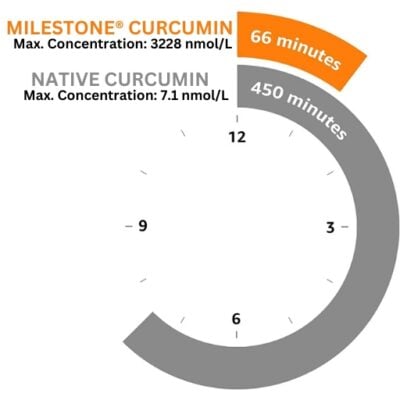
Rapid Absorption
Rapid absorption (66 minutes vs. 450 for native curcumin) lasting up to 24 hours (versus 2 hours). It boosts the antioxidant and anti-inflammatory response, ideal for vegans.

Bioavailability Comparison
Our curcumin extract boasts 185x higher bioavailability. It provides essential protection against oxidative stress, aids in calcium absorption for strong bones, while promoting energy and vitality.
Curcumin Extract vs Curcumin Supplements
Plant-Based
Is it plant-based and therefore suitable for vegans or vegetarians?
Fast Absorption
Absorbed in less than an hour.
Bioavailability
Without Lecithin, Piperine or any other substance to facilitate absorption.
Vitamin D3
Micellized Vitamin D3 for enhanced anti-inflammation support.
Free of Chemicals & Pesticides
Free of contaminants, heavy metals and pesticide residues
Sustainability
Is it eco-friendly and sustainable?
Are your products safe for infants and children?
Do your products contain any artificial additives or preservatives?
What age are these functional foods suitable for?
Can these functional foods replace a balanced diet?
Do I need a prescription to purchase these functional foods?
How do I introduce these functional foods to my infant?
Are these functional foods allergen-free?
Can I pair these functional foods with breastmilk or formula?
What is the shelf-life of these functional foods?
Do these functional foods taste good?
How are these better than over-the-counter vitamins?
Are your Vitamin D3 functional foods vegan?
If you didn’t find the answer you were looking for, feel free to ask us directly using the contact form below.








